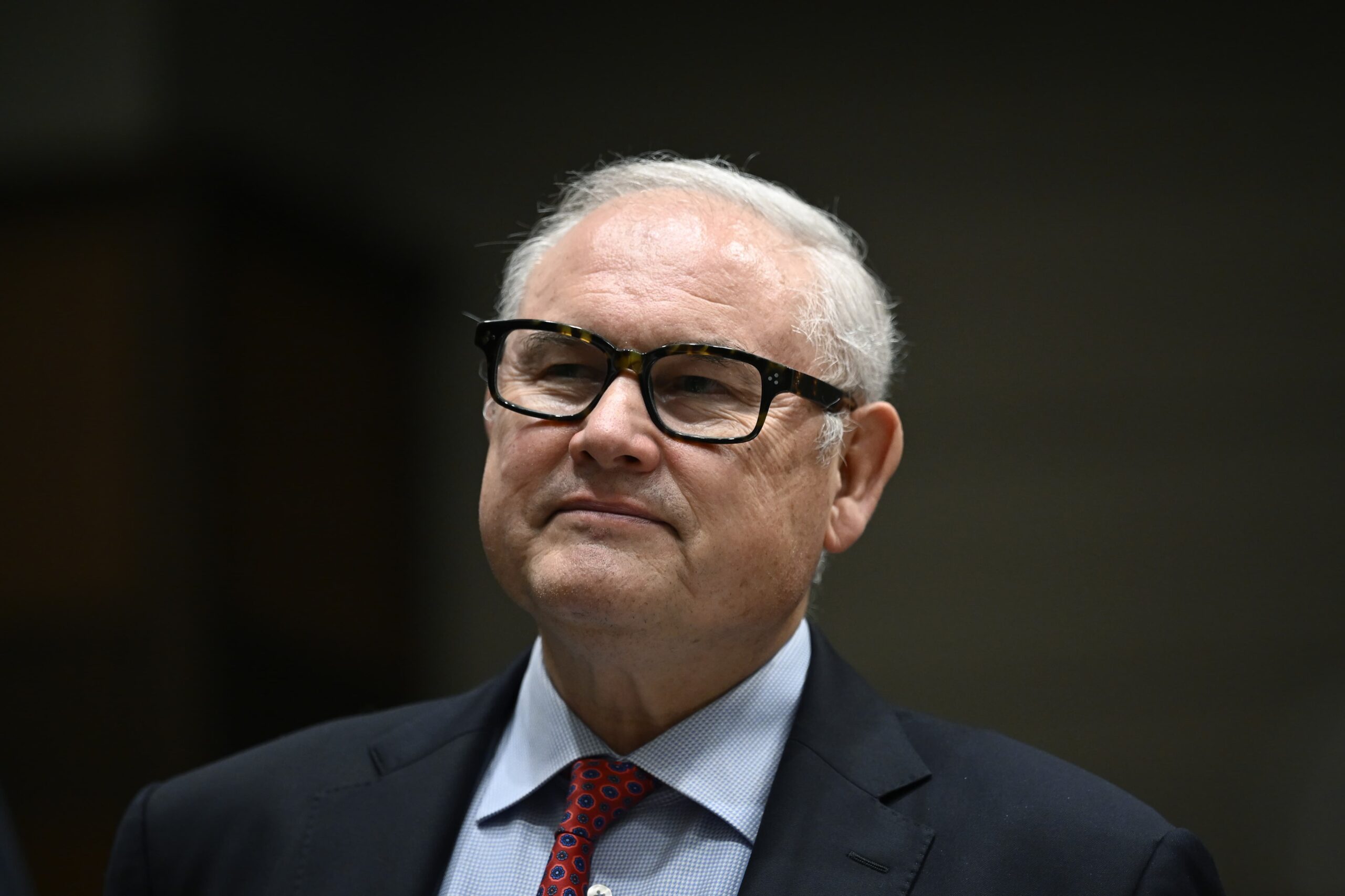A right-wing Christian organization behind successful efforts to roll back LGBTQ2S+ and abortion rights in the U.S. has been working in Canada for years. And while it has racked up some “successes” in this country, it’s near impossible to tell what the group is up to because of Canada’s lax finance laws, leading to calls for greater transparency.
The non-profit Alliance Defending Freedom (ADF) has been a central player in efforts to limit the rights of women, queer and trans people in the U.S. since the 1990s. The organization has been so pervasive and effective in its campaigns to malign LGBTQ2S+ people that it was classified as a “hate group” by the Southern Poverty Law Center. The ADF has intervened in numerous high-profile court cases including the recent Supreme Court case 303 Creative, which limited the purview of anti-discrimination legislation, and Dobbs last year, which overturned the right to abortion in the U.S. The ADF is on a roll, with no sign of slowing down. The Guardian reported in June the ADF plans to use “model legislation” and lawsuits to overturn same-sex marriage, enact a total abortion ban and strip away trans rights in the U.S.
The ADF looks as though it has a similar playbook for Canada. Its biggest impact that we know of so far is a 2012 Alberta high court ruling that protected religious-based hatred in the name of free speech. The ADF also recently worked with anti-abortion organization Canadian Physicians for Life, teaming up on a paper published in April opposing Canada’s Medical Assistance in Dying (MAiD) laws. Also in April, ADF had planned to hold its first private “corporate executive summit” at the Fairmont Banff Springs Hotel in Banff, Alberta, as reported by the Canadian Anti-Hate Network (CAHN). A March petition protested the event, and the ADF and the hotel did not confirm to CAHN whether it still took place.
That 2012 free speech case dates back to 2002, when Alberta pastor Stephen Boissoin was fined for hate speech for writing an anti-gay letter to a local newspaper. Boissoin’s letter to the Red Deer Advocate included statements such as “where homosexuality flourishes, all manner of wickedness abounds” and “homosexual rights activists and those that defend them, are just as immoral as the pedophiles, drug dealers and pimps that plague our communities.” After a 10-year legal battle, the Court of Appeal in Alberta upheld a lower court ruling overturning the human rights complaint against Boissoin. After the ruling, the ADF praised the work of Calgary-based lawyer Gerald Chipeur on the case.
Numerous Christian news websites name Chipeur, a lawyer with Miller Thomson LLP, as allied with the ADF, and a 2015 article published by libertarian think tank Acton quotes the ADF calling Chipeur “one of more than 2,500 private attorneys allied with ADF International.” It’s hard to gauge how large the group’s network is in Canada. But Chipeur himself has extensive ties to the Conservative Party of Canada and ultra-conservative Christian organizations.
Neither Chipeur nor ADF International responded to Xtra’s repeated requests for comment.

Calgary lawyer Gerald Chipeur has been identified as one of more than 2,500 lawyers allied with the Alliance Defending Freedom International. Credit: Justin Tang/The Canadian Press
Chipeur, who was born in the U.S. and has dual citizenship, pops up in some very interesting places. He was the former general counsel to the Conservative Party of Canada (CPC) and considered one of the founding members of the early-2000s “unite the right” movement that created the party by bringing the Reform Party and Progressive Conservatives together. He was an advisor and lawyer to former Conservative prime minister Stephen Harper and still has connections with current high-ranking conservative politicians, including CPC leader Pierre Poilievre and recent Alberta premier Jason Kenney—who served as Harper’s parliamentary secretary and secretary of state for multiculturalism and Canadian identity. Until 2013, Chipeur was listed as a director of Poilievre’s former polling and campaign management company, 3D Contact Inc., which used automated calling for conservative candidates. Chipeur travelled to Korea last year with then-premier Kenney, and he currently serves on Alberta’s mental health review board, where his ties to Kenney’s United Conservative Party brought accusations of bias in a parole case. Chipeur also worked with Ezra Levant, the founder of right-wing outlet Rebel Media, at his previous Calgary law firm, Chipeur Associates.
Chipeur also has a long history of working with conservative religious groups. He attended Burman University, a Seventh-Day Adventist school, in Lacombe, Alberta, where he was a professor from 1993 to 1997, and in 2017 he represented the Seventh-Day Adventist church in a Supreme Court of Canada case defending Trinity Western University’s mandatory covenant that banned sexual activity outside of traditional marriage. He has defended numerous conservative Christian organizations, including in 2019 when he represented evangelical Christian group Power to Change Ministries in a lawsuit against changes to the federal government’s summer jobs program.
Chipeur was named as the lawyer for a controversial ultra-conservative religious sect whose members fought against gay marriage and funded ads attacking Prime Minister Justin Trudeau and other Liberal candidates in the lead-up to the 2019 election. Journalist Marci McDonald, author of The Armageddon Factor: The Rise of Christian Nationalism in Canada, has said Chipeur acted as the Plymouth Brethren Christian Church’s (PBCC) lawyer for years.
The PBCC, which some ex-members have characterized as a cult, is led by Australian millionaire Bruce Hales and has thousands of members in Canada. The group requires women to wear headscarves, limits contact with the non-members and ex-members say leaders have cut them off from contact with their friends and families. The RCMP is currently investigating Brethren members in Saskatchewan for alleged sexual abuse, though a spokesperson has said the church does not tolerate abuse. Ex-members have made websites detailing their experiences, including one that listed those who committed suicide, but the sites have been shut down by PBCC’s legal team, the Winnipeg Free Press reported in a 2014 investigation. At least one of those sites was shut down after a suit Chipeur filed in 2009.
The news site Canadaland obtained emails last year that appeared to show Chipeur coordinating a manhunt for a former Brethren member turned whistleblower. Alan Hallman—a former Kenney advisor—confirmed to Canadaland that the Brethren hired him to work with Chipeur on the search. Canadaland also reported that Brethren-owned businesses “have received millions in procurement contracts” from Conservative provincial governments, including in Ontario, notably for PPE and other medical supplies during the COVID-19 pandemic.
“This is essentially a Canadian lawyer that’s affiliated with an organization that works extremely closely with hate groups, and is arguably a hate group,” says Florence Ashley, an assistant professor of law at the University of Alberta who studies issues faced by trans people in the legal and healthcare systems.
Because charities and non-profits in this country are not required to reveal their donors, it is difficult to understand how far the ADF and its allied lawyers like Chipeur have gone to undermine the rights of queers, women and others through donations to like-minded groups. The ADF boasts on its website that it has “more than 2,500 private attorneys” allied with its Austrian-based subsidiary ADF International, billed as “the world’s largest legal organization committed to protecting religious freedom, free speech, the sanctity of life, marriage and family, and parental rights.” Data from Open Democracy shows ADF spent more than $3.2 million in North America outside of the U.S. between 2007 and 2018, but there is no specific data for Canada, or details about who received that money. The ADF has fought to defend non-profit donor secrecy, taking its fight to the U.S. Supreme Court last year in a case that is still ongoing.
The money is even harder to track in Canada, which requires less transparency than the United States from charities and non-profits around donations and political activities. Canada’s Income Tax Act has confidentiality provisions for charities that essentially treat them like individuals. If a charity is funding or engaging in activities that violate their charitable status, the CRA cannot disclose these concerns unless it revokes the charity’s status—a process that can take more than a decade. In December 2018, the federal government dropped limitations on charities taking part in non-partisan political activities.
The lack of transparency leaves unchecked the activities of groups like the ADF. Adrienne Smith, a non-binary social justice lawyer practising in Vancouver, says they have noticed a “troubling trend” in Canadian law of registered charities similar to ADF engaging in litigation “to advance an ultra-conservative view of what Canadian society should look like.” Smith says this has become apparent especially with groups like Alberta-based Justice Centre for Constitutional Freedoms (JCCF)—a registered charity where Chipeur has served on the advisory board—bringing actions against trans rights and trans healthcare in B.C. JCCF has recently been involved in cases defending people who violated COVID-19 health restrictions, and is representing right-wing Kelowna, B.C.-based Christian Group Harvest Ministries International after Quebec’s tourism minister cancelled one of its Battle for Canada gatherings, which platform anti-trans and anti-abortion viewpoints. The JCCF’s revenue has increased sevenfold since 2017, bringing in $7 million last year, according to tax returns compiled by Charity Data.
“I think a lot of these organizations have undisclosed donors that are church groups or quite wealthy individuals, sometimes American interest groups, that fund these legal interventions,” Smith says. “The stakes are low for them, because the goal of the case is not really to change the law. I think it’s to be able to advance a political position.”
American conservative organizations funding Canadian political activities became an issue during last year’s Freedom Convoy, when massive crowdfunding efforts made donations especially difficult to track. A leak revealed more than half of the donors to a multimillion-dollar GiveSendGo campaign were from the U.S.
Ashley says international funding from American groups like the ADF and the Heritage Foundation is far outpacing money that goes to pro-LGBTQ2S+ causes.
“There’s really no equivalent investment in protecting LGBTQ2S+ rights. And that becomes all the more true when you’re looking at trans communities, who often are seen as unpopular even among more progressive movements,” they say.
In a July 30 blog post, Toronto-based lawyer Mark Blumberg urged the federal government to take action to “prevent the misappropriation of charitable assets and prevent non-profits and charities from engaging in egregious conduct.” He wrote that Canadian charities have less transparency than they did 15 years ago, saying Liberal and Conservative governments “have whittled away at transparency in the non-profit and charity sector.” Blumberg is urging the federal government to amend Section 241 of the Income Tax Act to allow the CRA to disclose “serious non-compliance with legal requirements by a registered charity” and allow the CRA to publicly disclose financial information contained on charities’ T1044 information returns.


 Why you can trust Xtra
Why you can trust Xtra


